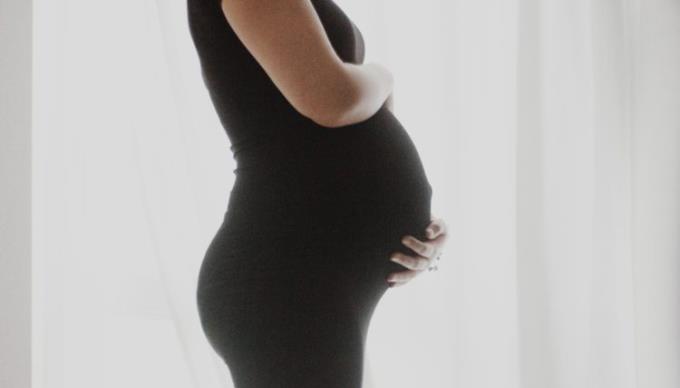The 7-month-old fetus will develop very quickly. Therefore, the mother's body pregnant will have many significant changes when the size of the belly increases rapidly along with the feeling of eagerness to wait for the day of labor . This will be an extremely "intense" and exciting time for pregnant mothers.
The seventh month of pregnancy (7 months fetus) marks the beginning of the third trimester and is also the last trimester experienced by the pregnant mother during pregnancy. This phase will start between 25 and 28 weeks of pregnancy. At this point, your baby will develop very quickly. In addition to the changes of the body, the discomfort of increased abdominal size along with the sense of eagerness to wait for the day of labor will make this time of pregnancy become extremely "intense".
In this article, aFamilyToday Health will help pregnant mothers learn more about the change of the body, the development of the baby, along with measures and tips to help mothers enjoy the 7th month of pregnancy. period safely and comfortably.
Mother pregnant situation will encounter in the 7th month of pregnancy?

At 7 months of age, your abdomen starts to get bigger, which will make you feel uncomfortable and lead to some of the following conditions:
• You may have difficulty walking: This happens because a developing baby puts pressure on your bladder and legs.
• You may experience low back pain from fetal pressure on the lower back and also your own weight gain.
• Your moods are very volatile and are prone to anxiety.
• During this stage, the uterine muscles begin to relax and the fetus presses more on parts of the body, so you may experience contractions and pain in the abdomen.
• Increasing your metabolism will cause your body temperature to rise. Therefore, you can feel hot even in cold weather. At times, you may even sweat and find it difficult to breathe.
• The more your baby develops, the more his body's center of gravity shifts downwards, the more pressure put on your bladder can cause you to urinate more often.
Some pregnant mothers may also experience anemia, hemorrhoids, abdominal pain, frequent heartburn and Braxton-Hicks physiological contractions that take place in this 7th month.
Changes in the mother's body during the 7th month of pregnancy
When the fetus is 7 months old, the body of pregnant mother will have significant changes to prepare for labor.
• Breast changes: Your breasts will become softer, heavier, the blood vessels will appear denser, and your nipples will become darker. At this stage, your breasts also begin to produce milk so you may leak milk from time to time. You should wear a bra that fits comfortably for the best protection and support.
• gait changes: The constant growth of your waistline causes your gait to change more or less and your feet will become the main load-bearing part. The 7th month of pregnancy makes you start to walk like a real pregnant woman.
• Swelling (edema): Increased blood supply can cause swelling and swelling in the hands.
• Fatigue: An oversized belly can make you uncomfortable during certain activities, making you tired easily.
• Varicose veins : Increasing the blood supply to the body dilates the veins in the legs.
Development of 7 months old fetus
Starting from this month of pregnancy, your baby has developed into a real human being. Your baby's personality and intelligence are also starting to develop more complex.
1. Your baby's changes at 7 months
Brain and Nervous System: Growing faster, sensitivity to sounds, smells and music has begun
Lungs: Begins to work
Sleeping and waking up: The amount of time your baby sleeps and wakes up should be clearer
Eyes: Eyes reacted to light and darkness
Fluff: Begins to disappear
Skin: Red and wrinkled, the baby may have begun to accumulate fat
Tongue: Taste spines are more developed to help babies distinguish between different tastes
Digestive system: Start working
Bones: Becomes stronger
Skull: Still soft
2. What size is the 7-month-old fetus?
By the 7th month, your baby weighs about 900-1,350g and is 38cm long.
3. The movements of the 7-month-old fetus you need to know
You may be able to experience regular "kicks" and "stretches" of your baby when your baby is 7 months old. At this stage, you can also connect and talk with your baby through sounds and light touches.
4. Baby's position at this point
The baby will lie upright and head towards the mother's uterus to prepare for her own birth. This position is considered to be the safest place for the baby to have a normal overpass.
Do's and Don'ts in the 7th month of pregnancy
Since it has entered the third trimester of pregnancy, pregnant mothers need to be especially careful with their diet and lifestyle.
Should do:
• You should consider walking regularly, able to rest between walks. In addition, pregnant mothers need to avoid standing and sitting in a position for too long. Keep your body active and flexible.
• Continue to exercise regularly under doctor supervision. You can walk, do yoga, swim, or whatever else you like. Having an active lifestyle will make it easier for you to give birth and recover faster after the baby is born. Basic stretching exercises are also very effective.
• Find a hobby like reading, drawing, singing or gardening. These interests will help you calm, relax, and keep you away from unnecessary thoughts and worries.
• Rest as much as possible. Lying on your back can be difficult as your abdomen starts to get bigger, so try lying on your side. Putting a small pad under your stomach or between your legs will make you feel more comfortable.
• Wear cotton clothes because they are quite breathable, making you more comfortable when your body temperature rises. You can also add deodorants made from natural ingredients.
Remember to have regular blood tests to check hemoglobin levels, especially if you have Rh- blood type.
Should not do:
• If you have a habit of smoking and drinking, stop this altogether. Also, stay away from smokers as passive smoking can also be dangerous to you and your baby.
• At this stage, it is very difficult to bend because your abdomen is already quite large. Don't try to do it and always maintain the correct posture.
• Do not carry heavy objects as it can put pressure on the abdomen and affect fetal development.
• Avoid exposure to music or loud noises. Your baby's hearing is now complete and any loud noises can startle your baby.
Tips on diet for 7 months pregnant mother

• Add omega-3 fatty acids to the diet as they help promote fetal development . This is also the stage where the baby develops cognitive and visual abilities. Foods like eggs, seafood and walnuts are very beneficial for your baby's development during this period.
• Eat fruits and vegetables that are high in iron and vitamin C. Naturally iron-rich vegetables include spinach, eggs, meat and leafy green vegetables.
• Eat snacks, moderate and nutritious foods regularly. Avoid overly hearty meals and oily dishes.
• Increase water intake and eliminate salt by not consuming canned foods , sauces, ketchup, chips and pickles. This will help you avoid fluid build-up and swelling.
• Include foods rich in fiber in your diet such as fruits, vegetables, legumes and whole grains.
• Avoid spicy, acidic, and fatty foods as they can cause indigestion and heartburn.
What do you need to do when you have regular pregnancy check-ups?
Starting when entering the 7-month-old fetus stage, you should go for pregnancy check-ups 2 times a month. Pregnant mothers must strictly follow the advice and guidance of the doctor. You may have to perform the following checks.
• Physical examination: First of all, your weight and blood pressure will be measured. Additionally, your chest, abdomen, and vagina may also be examined.
• Ultrasound: The doctor conducts an ultrasound to analyze and evaluate the fetus's development.
• Heart Rate: Doppler ultrasound will be used by a doctor to check your baby's heart rate.
• Rhogam injection: If you are Rh- rare blood type, you will need to get Rh immune globulin during this 7th month of pregnancy. It will help build antibodies to fight the Rh factor.
Ultrasound during 7 months of pregnancy
The optimal time to have an ultrasound is between 24 and 26 weeks, when your baby's parts have begun to form clearly and visible. Ultrasound helps us track the baby's development, check the level of amniotic fluid, determine the position of the fetus and evaluate the condition of the placenta.
Things pregnant mothers often worry about in the 7th month of pregnancy
If you experience the following conditions or other unusual symptoms that are bothersome and painful, see your doctor right away.
• Excessive pressure or pain in the lower back
• Reddish-brown vaginal discharge
• Bleeding gums
• May produce a lot of mucus and saliva
• Headache, fatigue and dizziness
• Have constipation or digestive problems
• Forgetful
• Have heartburn and hemorrhoids
Share with your husband what you are doing and seek help from him, that will help you through your pregnancy more comfortably.
Some tips for future fathers

Not only expectant mothers, fathers right from the time the fetus is 7 months old should have certain preparations, such as:
• Prepare a room with your wife. Although your couple's room is the safest place for your baby in the first 6 months of life, you may not have time to prepare a room for your baby after birth so preparing it now will help. you are less worried in the future.
• Bring your wife to training sessions and practice relaxation techniques to relieve pain during labor . Practicing these techniques every night before bed will help a lot.
• Help your wife make a list of baby essentials. You should buy them early to save time and be more proactive in everything.
• Talk to other fathers on the forum to overcome fears and worries. Accumulating helpful advice will help you better prepare for the birth of your baby.
From this point to the time of labor, which only consists of 3 short months, pregnant mothers will be through all levels of emotions from joy, excitement, hope, anxiety to anxiety. Please cherish this time and indulge yourself a little to feel happier. Find out what's going on with you and your baby to avoid unreasonable worries. Remember, don't skip routine checkups, follow the necessary precautions for a healthy pregnancy.














